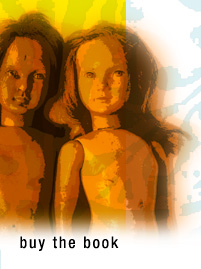|
Christ, Amy Lowell is a novel absorbed with the iniquities and nobilities that grip people daily. The title refers to a poem by the renowned early twentieth century poet Amy Lowell, in which she cries out, "Christ, what are patterns for?" The words are a leap of faith as well as a leap into the unexpected world of Amelia Post. Her life is the before and after of our and other lives, an onslaught as well as a remedial event. We live, therefore we are and must be; a tangle Amelia seeks to unravel.
Author Elizabeth McCaslin lives in Beaufort, South Carolina. As a former counselor and current volunteer for various organizations, she has had the opportunity to observe the full range of human behavior. She says her experience has given a wonderful boost to her writing. She also says she cannot "not" write so she can be found most days and assorted nights on her computer, typing furiously in order to get disappearing thoughts on screen. "That's no different than most writers," she says. "We're obsessive/compulsive in a strange way. Besides I love people and find nothing more exhilarating than to be with friends and acquaintances and children and dogs and mothers and dads and to go wherever the wild things are . . . whether beloved or regretfully discarded."
She wrote Christ, Amy Lowell as the events were described to her by her characters. They gave life to Amelia and to Melanie and her five-day-old baby, who travel from Florida to California to soak up a mentor's spirit. Amelia's mentor Emily, though deceased, has a great influence upon Amelia's reaction to off-center environments. The travelers are accompanied by Mehitabel the cat and a bottle of gin that, oddly enough, is intended to keep Amelia sober. The women decide to delete their own destructive patterns and to enjoy their travels: extraordinary travels, as their route is overrun with surprising people, uncommon places and remarkable things.
Amy Lowell's poem Patterns is included to show the origin of the book's title. The last line of her poem asks "Christ, what are patterns for?"
|








